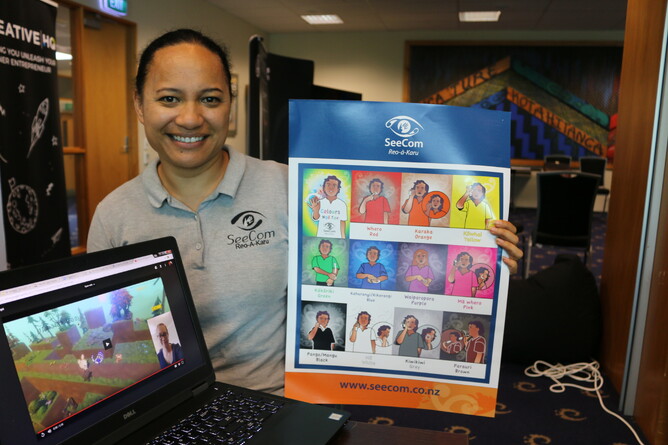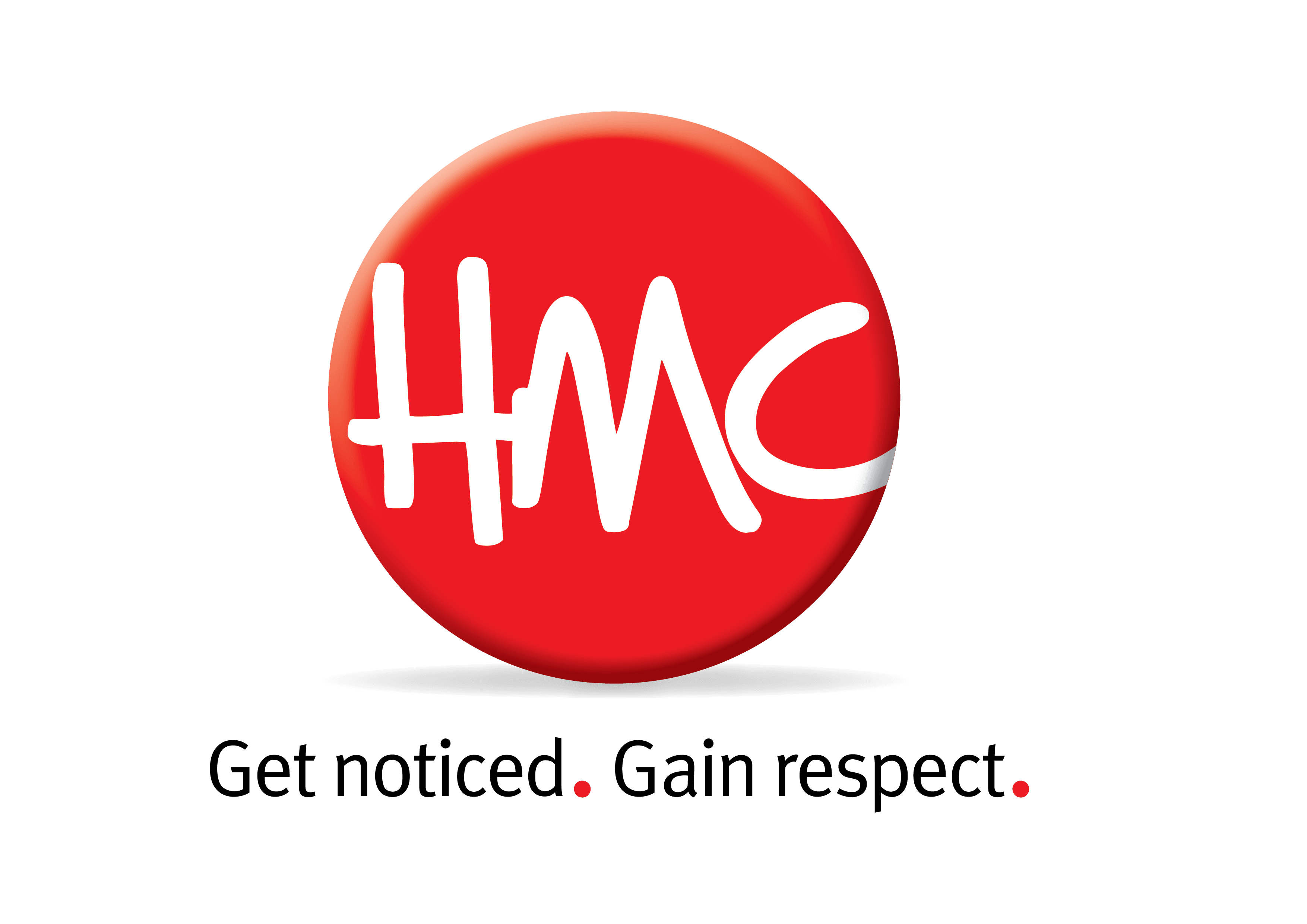Hamilton woman Adele Hauwai is the innovator behind SeeCom (Reo-a-Karu), a social enterprise which provides sign language classes and products, and is developing an interactive, digital sign language game to help people communicate.
“Sign language is one of the easiest languages to learn and it can be fun for children, parents and whanau,” says Ms Hauwai. “There are so many benefits to learning sign language. It’s not just for deaf people. We educate parents how to communicate with all children using reo rotarota (sign language), even parents of children with autism or with slow speech development or learning challenges.”
SeeCom was established in November 2016 by Ms Hauwai, and she has grown her company into one that employs 12.
Initially set up to teach basic sign language to parents and caregivers of babies, the company has become much more than that.
In the past year SeeCom has been recognised with multiple awards for its products and services, which also includes sign language posters and flash cards in te reo Māori.
Ms Hauwai says one of the challenges of her business is the misconception that sign language is only for deaf people. She says sign language “is for everyone” and can be used as a “support language” for everyone from babies, toddlers and children to those with communication barriers.
“Sign language is empowering,” says Ms Hauwai. “I struggled with learning, and sign language helped me. I’ve been communicating in sign language for more than 25 years. For a toddler or child who struggles to communicate it reduces frustration and tantrums, helps with bonding and relationships and boosts confidence.”
She says the value of sign language in an education setting is immense, and there is a lot of interest from ECE teachers and educators in learning it.
SeeCom offers professional development sign language classes for schools and organisations. They are particularly focused on training people who are fluent in te reo Māori to be sign language tutors, and have been inundated with interest from Māori organisations and schools, including kura kaupapa and kōhanga reo.
“We've had strong interest from parents of children with disabilities, health workers, social workers, kaiako teaching te reo Māori and school teachers,” says Ms Hauwai. “It's a win-win for all communities – even opening up employment and education opportunities for people with health limitations but have the competency and passion to teach reo rotarota.”
Of Waikato-Tainui, Ngāti Kahungunu and Tūhoe descent, Ms Hauwai juggles family life and a six-year-old son with entrepreneurship.
Ms Hauwai is passionate about sharing her passion for sign language. “There are more than 200 sign languages around the world, so there is huge potential to develop sign language products, services and apps.”
The SeeCom team are in the process of developing an interactive digital game that uses sign language. Their innovative sign language game traces the gamer’s body movements and signs to make the character do something in the game. “If you sign JUMP, the character jumps, sign SWIM, the character swims,” says Ms Hauwai.
The game has past the prototype stage, and SeeCom are currently doing research to produce the full game version. “We are testing it in different markets to see how different users interact with the game, and we are looking for investors and funding to get it to market,” says Ms Hauwai.
Kahurangi Taylor, a Waikato Innovation Park business growth advisor, said that SeeCom’s new product is innovative with a lot of potential. “It’s a really cool game and something that everyone will enjoy.”
Ms Taylor has been working with Ms Hauwai since last year. The Waikato Innovation Park business growth team has helped with advice and funding to grow.
The group is funded by the Regional Business Partner Network (RBPN) which is supported by New Zealand Trade & Enterprise (NZTE) and Callaghan Innovation. Their focus is on supporting businesses with high-growth aspirations that are export focused, technology-driven or have innovative products or services with real commercial merit.
Ms Hauwai was encouraged to apply for a Callaghan Innovation Getting Started grant, which covers 40 per cent towards the total cost for game developers to work on developing a prototype for the game last year. Waikato Innovation Park Business Growth Advisors mentored Ms Huawai through the application process.
The Waikato Innovation Park team also helped her access mentoring and networking events with other entrepreneurs. “I’ve attended a lot of the Māori business hui and it’s been powerful hearing other people’s success stories and experiences,” says Ms Hauwai, who is currently a participant on the Kōkiri Māori business accelerator programme, run by Te Wānanga o Aotearoa, Ministry of Business, Innovation and Employment and Callaghan Innovation.
In the past year SeeCom has won four awards. These included Launching Leaders (LDS-BPA) 2016, the Dig My Idea - Māori Innovation Awards (Open Category) in 2017, Innovate NZ Competition Finalist 2017 and the Kōkiri awards 2018. Ms Hauwai also received a Māori entrepreneur bursary to attend the Social World Enterprise Forum in September 2017.
Ms Hauwai says to make it in business requires persistence, grit, resilience and passion. “Networking is really important too, and making contacts. You also have to be self-motivated and ensure you don’t keep your good ideas in your head, that you have the courage to execute them.”
Entrepreneurs can get caught up in the work required to launch a business, but Ms Hauwai says it’s important to be careful to avoid burn-out. “It’s important to retain a good work-life balance. Go for walks, get good sleeps, spend time with family, get a massage or meditate.”
Ms Hauwai hopes that her business will have a positive effect on people lives. “With educating more communities about how sign language can benefit them as a support language, we have done away with the myth that sign language is just for deaf people,” says Ms Hauwai. “What we are doing is trying to develop hands-on learning that is fun, educational and will help people to communicate through sign language."

